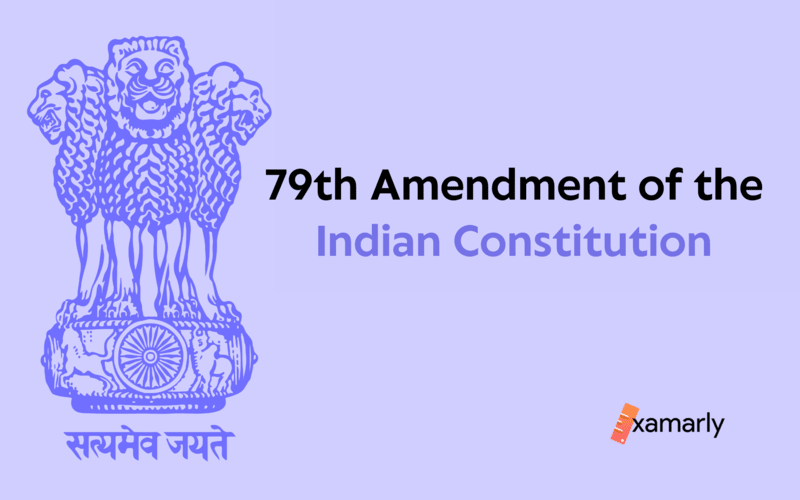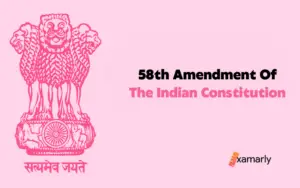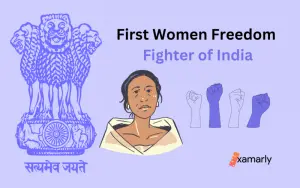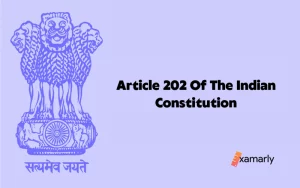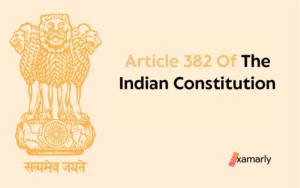79th Amendment of the Indian Constitution has extended reserved seats for members of the Scheduled Castes, Scheduled Tribes, and Anglo-Indians in Lok Sabha and State Legislative Assemblies till 2010.
Here is a look at some of its major provisions that were introduced. The objective and reason for the amendment are also discussed in this article. In exams like UPSC and other State PCS, this article will prove to be beneficial.
79th Amendment of the Indian Constitution
The Seventy-ninth Amendment of the Indian Constitution, also known as the Constitution Act, 1999, was passed to extend the period of reservation of seats for the Scheduled Castes, Scheduled Tribes & Anglo Indians in the Parliament of India and state legislatures.
This is considered to be an important amendment that has aimed to prevail Social Justice to Scheduled Castes and Tribes by giving representation in the Lower house of Parliament and states.
Article 334 of the original Constitution specified that reserved seats of Scheduled Castes, Scheduled Tribes, and Anglo-Indians in Lok Sabha and State Legislative Assemblies expire in 1960; however, the 8th Amendment extended this limit to 1970.
This was again extended for 10 years several times from 1970 to 2000, thanks to the 23rd, 45th, and 62nd Amendments of the Indian Constitution. The 79th Amendment of the Indian Constitution has extended it until 2010.
The 95th and 104th Amendments further prolonged the reservation period, bringing it to 2020 and 2030, respectively.
Key Points
- The official term used to address the 79th Amendment of the Indian Constitution is The Constitution (Seventy-ninth Amendment) Act, 1999.
- Ram Jethmalani, who served as minister of law, justice, and corporate affairs at the time, tabled it.
- Lok Sabha first heard about it.
- The bill of the 79th amendment has been brought into the constitution to amend article 334 for the reservation and representation purpose which is discussed here in this article.
- Parliament enacted it amendment in the fiftieth year of the Indian Republic.
- Amendments which are related to this legislation are:
- 25th January of 2000 saw its enactment.
- In 2000, after being approved by the States, the bill was given the seal of approval by K. R. Narayanan. He was the president at that time.
Objects and Reasons
According to Article 334 of the Constitution, the provisions relating to the representation of the Anglo-Indian community through a nomination in the Lok Sabha and in the Legislative Assemblies of the States, as well as the reservation of seats for the Scheduled Castes and Scheduled Tribes, cease to end in fifty years after the Constitution’s inception.
The Scheduled Castes and Scheduled Tribes have made considerable growth over the past fifty years.
By acknowledging the efforts made by this provision, it is required to extend this provision 10 years more for the Scheduled Castes and Scheduled Tribes, as well as the Anglo-Indian community by nomination.
Constitutional Provisions
79th amendment of the Indian constitution has amended Article 334 of the Constitution. The amendment says that after sixty years from the date of the beginning of this Constitution.
The Scheduled Castes and Scheduled Tribes’ seat reservations and the Anglo-Indian community’s representation by nomination in the House of the People and in the State legislative assemblies will come to an end.
However, until the dissolution of the then-current Lok Sabha or Assembly, as the case may be, nothing in this article shall alter any representation in the House of the People or in the Legislative Assembly of a State.
Ratification
79th amendment has passed in accordance with clause (2) of article 368 and it was approved by more than half of the State Legislatures. There are 10 states that didn’t ratify it: These were Andhra Pradesh, Gujrat, MP, Rajasthan, Punjab, and some northeastern states.
Conclusion
To impart political empowerment to marginalized Scheduled Scheduled Castes and the Scheduled Tribes, the Constituents assembly in the original constitution bestowed the reservation of some seats to them in Lok Sabha (Lower house of Parliament) and the State legislature.
This provision was added fifty years since the constitution came into effect. This provision was about to end in January 2000. but by acknowledging considerable progress in the political status of this section, the Legislature proposed to extend this provision further for ten years.
FAQs
Q: How long will the reservation for SCs and STs be in place in India?
A: The reservation for SCs and STs in India was initially meant to be in place for only 10 years after the adoption of the Indian Constitution in 1950. However, it has been extended several times and is still in place.
Q: Is there any reservation for OBCs (Other Backward Classes) in India?
A: Yes, there is a reservation for OBCs in India. The percentage of reservations for OBCs varies from state to state and can be up to 27%. However, this reservation is not applicable at the national level for jobs in central government institutions.
Q: What is the percentage of reservations for SCs and STs in India?
A: The percentage of reservations for SCs and STs in India varies from state to state and depends on the population of these groups in each state. However, the minimum reservation percentage for these groups at the national level is 15% for SCs and 7.5% for STs.
Q: What is the reservation policy for SCs and STs in India?
A: The reservation policy for SCs (Scheduled Castes) and STs (Scheduled Tribes) in India is a form of affirmative action, which reserves a certain percentage of seats in educational institutions and government jobs for these groups.
Q: Who is eligible for reservation under the Anglo-Indian category in India?
A: Until 2020, only Anglo-Indians were eligible for reservation under the Anglo-Indian category in India. However, after the abolition of reservations, they are no longer eligible for any special privileges or reservation benefits.


